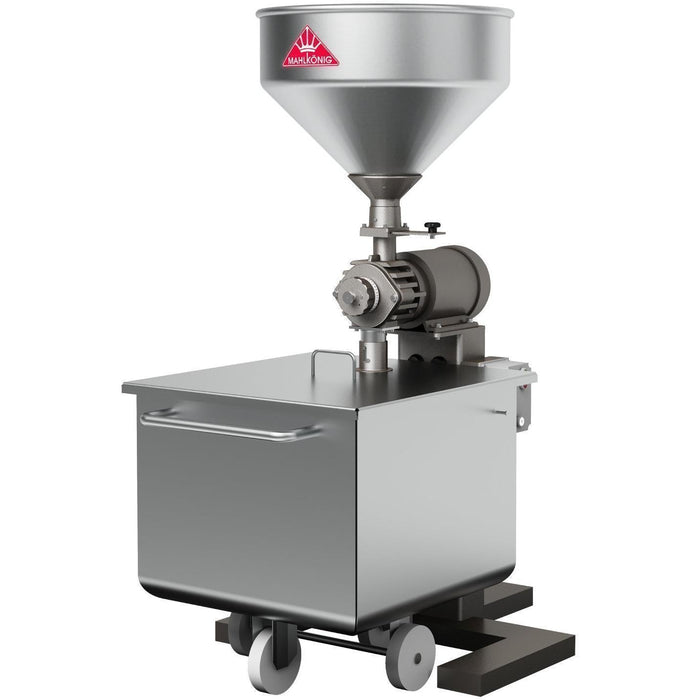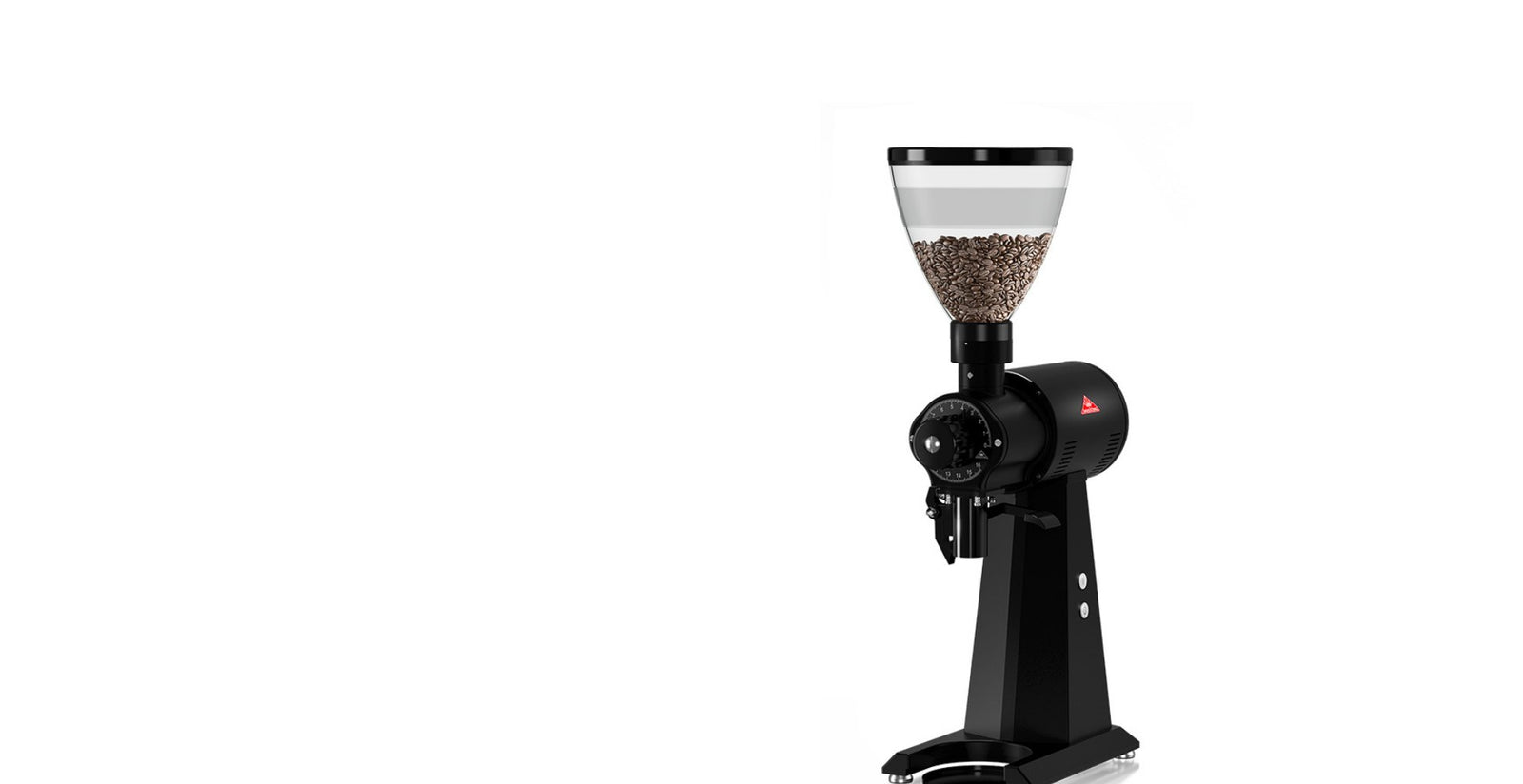Just How to Pick the Perfect Industrial Coffee Grinder for Your Organization
Picking the ideal industrial coffee mill for your organization is a complex choice that calls for cautious consideration of a number of vital elements. Additionally, understanding the various kinds of grinders readily available can significantly influence your functional efficiency.
Assess Your Grinding Demands
When choosing a commercial coffee mill, one should first analyze their grinding requirements to ensure optimal efficiency and consistency. This first assessment entails understanding the quantity of coffee to be refined daily, as well as the wanted grind dimension for various developing approaches. A high-capacity mill may be required for organizations serving big quantities of coffee, while smaller sized procedures might find a more compact model sufficient.
Furthermore, it is necessary to consider the sorts of coffee beans being used, as various beans might call for details grinding strategies to accomplish the most effective taste account. For example, oily beans could require a grinder designed to handle such qualities without clumping or overheating.
Specialty coffee businesses usually demand specific grind dimensions to enhance extraction and flavor, making it vital to select a mill that can deliver uniform results. Evaluating the offered area and electric requirements will certainly aid in picking a mill that fits seamlessly into your functional operations.
Understand Grinder Types
Comprehending the different types of commercial coffee grinders is vital for making an informed choice that meets specific functional demands. There are primarily two categories of grinders: blade grinders and burr mills.
Blade mills use spinning blades to cut the coffee beans, leading to an inconsistent work dimension - Industrial Coffee Grinder. While they might be much more affordable, they are typically not ideal for industrial applications where accuracy is essential
On the various other hand, burr grinders give a much more consistent grind by crushing the beans in between 2 surface areas. They can be additional categorized into flat burr and conical burr mills. Flat burr grinders offer a consistent work dimension and are normally preferred for espresso prep work, while cone-shaped burr mills are flexible and can handle a range of mixture approaches, from espresso to French press.
When choosing a grinder, consider the details requirements of your organization, consisting of desired work uniformity, manufacturing quantity, and the kinds of coffee beverages you plan to supply - Industrial Coffee Grinder. Each grinder type has its advantages and constraints, so recognizing these nuances enables informed decision-making that lines up with functional goals
Evaluate Grind Dimension Consistency
Accomplishing work size consistency is essential for generating top quality coffee, as variants in particle size can substantially impact removal and flavor. When picking a commercial coffee grinder, it is crucial to review exactly how well the equipment keeps uniformity in work size across various sets. Irregular work sizes can bring about uneven removal, causing a cup that might taste overly bitter or weak.
To evaluate work size consistency, take into consideration grinders with functions such as adjustable work setups and high-grade burrs. Burr mills, specifically, master generating uniform particle dimensions contrasted to blade grinders. The material and form of the burrs play a vital role, with stainless-steel and ceramic alternatives offering durability and precision.

Take Into Consideration Production Capacity
In the busy globe of coffee manufacturing, thinking about manufacturing capacity is critical for businesses intending to fulfill need without giving up top quality. The manufacturing ability of a commercial coffee grinder directly influences a company's ability to satisfy orders efficiently, handle stock, and reply to changing market fads.
When analyzing manufacturing capability, it is necessary to assess the mill's result rate, typically gauged in extra pounds per hour. This dimension ought to align with your organization's projected sales quantity and development targets. A café with a high turn over might require a grinder that can refine several hundred pounds daily, while a smaller operation could be enough with a reduced capacity model.
In addition, think about the kind of coffee being refined. Different beans and blends may influence grinding speed and efficiency, necessitating a mill qualified of dealing with diverse manufacturing needs. It's additionally worth considering the grinder's capacity to preserve consistent high quality under high output conditions, as any kind of fluctuations can impact the last item.
Ultimately, picking a mill that matches your business's production capability will certainly guarantee you continue to be responsive and competitive to consumer assumptions.

Budget Plan and Upkeep Factors
When assessing the best industrial coffee maintenance, budget plan and grinder variables play a significant function in the overall decision-making procedure,. An initial investment in a high-grade mill can produce long-lasting advantages, but it's crucial to establish a clear budget that aligns with your company's functional needs. Consider both the acquisition cost and possible functional costs, such as power intake and replacement parts.
Maintenance is an additional crucial aspect that can impact your spending plan. Industrial coffee grinders require normal upkeep to make sure optimal performance and long life. Assess the manufacturer's referrals for upkeep, including cleansing routines and components substitute, as these will certainly Full Report affect long-term functional expenses. Additionally, think about the availability of solution and support, as trustworthy assistance can alleviate downtime and repair expenses.

Spending in a grinder that is durable yet easy to maintain can conserve money over time. While lower-priced options may be alluring, they might sustain greater upkeep expenses and minimized efficiency. Ultimately, balancing initial expenses with long-lasting upkeep and functional performance will guide you to the most effective selection for your organization's coffee grinding requirements.
Verdict
Selecting the suitable industrial coffee grinder requires an extensive examination of grinding needs, grinder kinds, grind size uniformity, manufacturing capability, and monetary factors to consider. By prioritizing these elements, companies can make certain the acquisition website link of a dependable, efficient mill that satisfies details functional demands. A well-chosen mill not just boosts the top quality of the coffee created but also contributes to the total success and productivity of the business. Long-lasting performance and upkeep ease must remain central to the decision-making process.
Specialty coffee organizations commonly require specific work sizes to improve extraction and taste, making it vital to choose a mill that can provide uniform outcomes. Apartment burr grinders supply a consistent grind size and are usually preferred for espresso preparation, while conelike burr grinders are flexible and can handle a variety of mixture methods, from espresso to French press.
When picking an industrial coffee grinder, it is essential to evaluate just how well the machine preserves uniformity in work dimension across different sets. Burr mills, in particular, stand out in generating uniform bit sizes compared to blade mills.Picking the optimal industrial coffee grinder demands a complete examination of grinding requirements, mill types, grind dimension uniformity, production capability, and budgetary considerations.